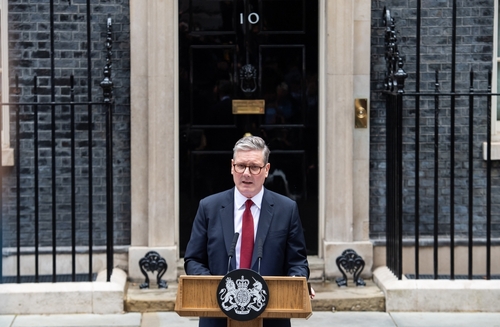This is the most damaging internal rupture since Keir Starmer’s government took office, but it was provoked not by a challenger but by his own allies. A series of anonymous briefings suggesting that the prime minister might face, and would confront, a leadership challenge from Health Secretary Wes Streeting sent the Labour Party into panic and pushed a simmering debate into a full-blown public crisis.
It wasn’t the rumors that were the shock. It was that Downing Street essentially confirmed them. As one minister put it: “They’ve lost their minds.”
Now let’s look at the items and put them in order from least to most well-described:
Why this eruption matters
Starmer came to office in 2024 at the back of a landslide on a promise of stability after years of political churn. Instead, the first 16 months have been marked by:
• ethics scandals
• High staff turnover
• Poor communication skills
• Growing pressure from Nigel Farage’s Reform UK
• and a looming tax-raising budget that breaks Labour’s manifesto
MPs have grumbled about the direction of the party behind closed doors for a long time, but until this week the conventional wisdom was that any serious move against Starmer would come after the local elections in May 2026. The briefing changed that calculus overnight.
The Briefing That Backfired
Insiders now trace the crisis to a two-step communications failure:
1. An initial anonymous briefing to the Times that Starmer would “face down” any future challenger.
2. Follow-up briefing naming Streeting personally, and firing the story across national media.
That second briefing, unauthorized it seems, ran directly counter to the message of party unity promoted by Starmer. Far from any display of strength, it betrayed anxiety and disorder inside No. 10.
Streeting replied to deny the plotting and to accuse Downing Street of “engineering a toxic culture.” He called for the removal of the briefers.
Finger-Pointing and Internal Suspicion
The fallout has been intense: MPs blamed senior aides, particularly chief of staff Morgan McSweeney, though no evidence has emerged. Others have floated theories about outside actors, including ex-adviser Peter Mandelson. What really ties them all together is this: nobody knows who is actually in control.
Her absence is repeatedly cited as one of the key factors: Steph Driver, Starmer’s former communications chief and most trusted aide. Many aides insist such a fiasco would never have happened under her watch.
Directionless Government
But beyond the briefing itself, this episode underlines a wider concern: that of Starmer’s management style. Unlike previous Labour leaders, he does not command a natural faction, let alone a long-standing inner circle. The effects become evident:
• Conflicts in strategies between departments
• Messaging is inconsistent
• Outsourcing of key policy decisions
• Advisors don’t have clear boundaries
A number of MPs say they believe Starmer is often presented with a “curated” version of events; sometimes he doesn’t know how decisions are landing politically.
His team says he is still focused on governing, cautioning against panicked reactions to the shifts in weekly polling. But the last few days have underlined how internal missteps can overshadow policy work in an instant. PICTUR Potential Challengers and Their Limits Most frequently discussed as challengers from the party’s right are Wes Streeting and Home Secretary Shabana Mahmood.
But both have to fight to hold their own seats, and the soft left doesn’t have an organized figure since Angela Rayner quit. Still, at this point, no one faction possesses enough numbers realistically to challenge. By validating the idea, though, No. 10 has made one more likely in the long term, especially if Labour underperform in May 2026.
What Happens Next
The immediate future is uncertain. Starmer needs to reassert authority, restore discipline in Downing Street, and shut the communication gaps that produced this crisis. The comparison with Tony Blair-a leader who projected clarity, even through infighting is no longer flattering. This episode has created a perception that Starmer is not fully in control of his operation. Whether that perception becomes political reality now depends on whether he can regain grip before the party decides his time is up.






















